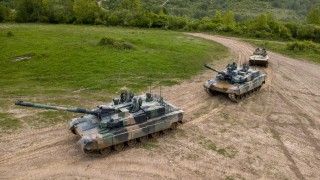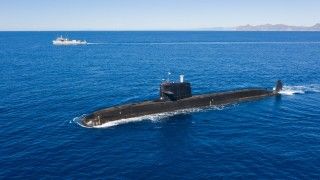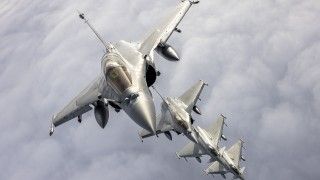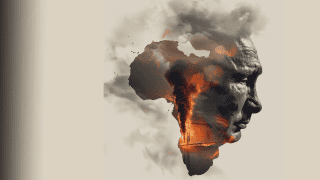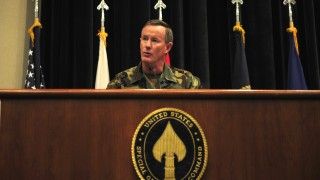- WIADOMOŚCI
East Front News #48: Poland and NATO increase defence spending
East Front News is a weekly newsletter summarizing the past week’s most important events concerning security and the situation in the Central and Eastern Europe region. It includes original opinions and comments, along with key news items significant from a Polish perspective. If you would like to receive this newsletter, please sign up by clicking .
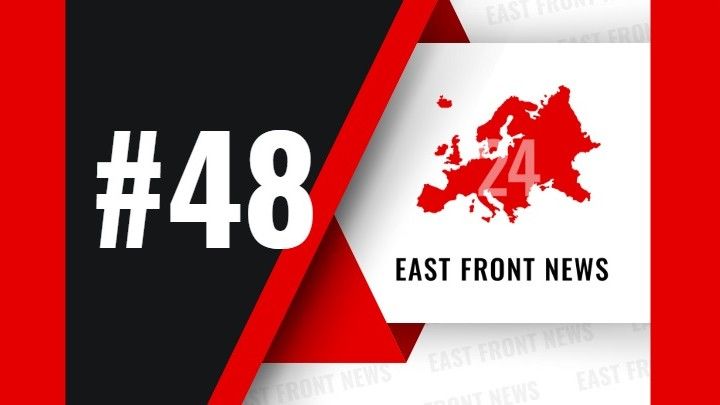
NATO Sets Sights on 5% GDP Defence Spending Amid Rising Security Challenges
At a recent meeting in Brussels, NATO defence ministers agreed on a bold new set of military capability goals aimed at strengthening the Alliance’s deterrence and defence posture, including a proposed target of allocating 5% of GDP to defence spending. NATO Secretary General Mark Rutte emphasised that this investment would cover key areas such as air defence, combat aviation, tanks, drones, personnel, and logistics, calling it essential for the security of one billion NATO citizens. The proposal includes 3.5% of GDP for core defence expenditures and an additional 1.5% for infrastructure and security-related industrial investments. This shift reflects growing consensus that the current 2% benchmark, established at the 2014 Wales Summit, is insufficient in the face of evolving threats.
While countries on NATO’s eastern flank, like Poland and the Baltic states, broadly support the increase, Western European nations such as Spain remain more cautious. During the NATO-Ukraine Council session, Ukraine’s Defence Minister Rustem Umerov briefed allies on the current situation at the front, including continued Russian attacks on civilian infrastructure. Discussions also centred on further support for Ukraine, with NATO allies pledging over €20 billion in additional military aid for 2025, and nuclear deterrence reaffirmed as a cornerstone of Alliance security. The final decision on these goals is expected at the NATO summit in The Hague later this month.
Poland Receives Further Tanks and MLRS Units from South Korea
Deputy Minister of National Defence Paweł Bejda and the Armament Agency announced the latest delivery of military equipment from the Republic of Korea for the Polish Armed Forces.
According to the report, another shipment of military hardware produced in the Republic of Korea for the needs of the Polish Armed Forces has arrived in Poland. This shipment included nine K2 tanks, which means that there are now above 130 tanks of this type in Poland.
Under the executive agreement signed in August 2022, Poland ordered a total of 180 such tanks, with deliveries scheduled through 2025. These tanks are currently equipping units within three brigades of the 16th Mechanized Division: the 20th Mechanized Brigade, the 9th Armored Cavalry Brigade, and the 15th Giżycko Mechanized Brigade.
Russia May Seek to Deploy 10K More Troops to Moldovan Separatist Region of Transnistria
In his recent interview with the Financial Times, Moldovan Prime Minister Dorin Recean warned that the Kremlin seeks to station up to 10,000 troops in the pro-Russian separatist region of Transnistria, referring to Moldovan intelligence assessments. Ever since gaining de facto independence from Moldova, Transnistria has relied heavily on Russian military and diplomatic support to maintain its autonomy. Today, however, Russian forces in the region have dwindled to around 1,500 troops, potentially calling the existing status quo into question. In this context, a significant military buildup would grant Moscow renewed leverage, not only over Moldova itself but also over Ukraine’s southern border, Romania’s immediate neighborhood, and, by extension, the NATO eastern flank.
To achieve this, however, Moscow would need a Russian-leaning government in Chișinău, Recean underlined. Therefore, the plan fits into broader Russian efforts to undermine Moldovan democracy and derail the country’s integration with the EU and NATO, notably through disinformation and corruption campaigns. The 2024 presidential elections and EU referendum, both narrowly won by pro-European forces, illustrated just how fragile the country’s political balance remains. Now, according to Recean, the Kremlin has turned its focus to influencing the upcoming parliamentary elections. At the same time, Moldova’s warning may serve as a diplomatic reminder to its Western allies to devote greater attention and resources to a country largely overshadowed by the Russian-Ukrainian war.
4% of GDP for Defence – The Constitutional Foundation of Security in Poland
Last Wednesday, the President of the Republic of Poland, Andrzej Duda, accompanied by representatives of the National Security Bureau, presented in the Sejm a draft constitutional amendment which he submitted at the beginning of March this year, proposing to enshrine in the supreme legal act the obligation to allocate at least 4 % of GDP to defence spending.
Currently, Poland allocates 4.7 % of GDP to defence, placing us among the leading European countries in terms of financial commitment to security; enshrining this amount in the Constitution has not only a budgetary dimension but, above all, significant political importance, and in view of the deteriorating geopolitical situation on NATO’s eastern flank, the decision to constitutionally guarantee a 4 % of GDP threshold unambiguously signals determination and readiness to strengthen the state’s defence capabilities. On Thursday, during a meeting of NATO defence ministers in Brussels, Donald Trump’s proposal to raise defence spending to 5 % of GDP resurfaced; enshrining 4 % of GDP in the Constitution is intended to demonstrate solidarity with allies and serve as part of a strategy to deter potential aggressors, which strengthens Poland’s position on the international stage and shows not only a declared will but also a legal commitment to continuously increase defence spending in the face of escalating tensions.
U.S.–Iran Deal Dilemma
Over the past few weeks there has been a lot of discussion about the of U.S.- Iranian nuclear deal negotiations. Certainly, the perspective of the potential agreement is crucial as the fate of security in the Middle East region is in balance. Last week Washington came up with the idea that Iran could temporarily enrich the uranium at a lower level. It was designed to prevent Iran from developing nuclear weapons while allowing access to uranium enrichment for civilian nuclear energy purposes. What is more, it was proposed to create a regional consortium containing of United States, Saudi Arabia and United Arab Emirates to manage uranium production. By deriving the benefits of consortium-managed facilities, Teheran will be obligated to cease uranium enrichment within its borders. Nevertheless, the details of this proposal are still vague. A couple days after this announcement, on June 4 Ajatollah Chamanei rejected Trump’s administration’s suggested abandonment of uranium enrichment, arguing that it goes against Teheran’s national interests.
It is worth nothing that reaching the nuclear deal with Iran is perceived as a one of the priorities of the American administration to achieve the regional peace. During Donald Trump’s first term he withdrew from Iran nuclear deal (JCPOA) calling it the worst agreement in the history of United States. Now he replaces the maximum pressure policy with negotiations to save the Middle East from regional war.
France - too few nuclear warheads for extended deterrence?
France currently possesses 290 nuclear warheads, making it one of the smallest arsenals among the permanent members of the UN Security Council. In the face of the current threat from the Russian Federation—which explicitly fears the expansion of NATO’s nuclear umbrella—the question arises whether this French capability is sufficient not only for national defence but also for potentially supporting European allies within a broader deterrence strategy.
If you would like to receive this newsletter, please sign up by clicking.
East Front News is a weekly newsletter and article on Defence24.com summarizing the past week’s most important events concerning security and the situation in the Central and Eastern Europe region. It includes original opinions and comments, along with key news items significant from a Polish perspective.
Aleksander Olech, PhD & Jakub Palowski, Deputy Ed. in Chief, Michał Górski













